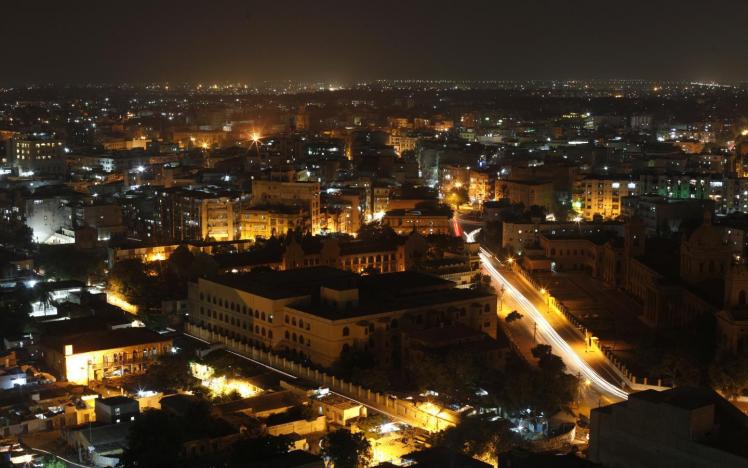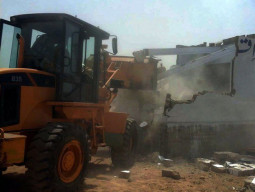
Akin to the master plans of the past, the city administration has failed to implement the Karachi Master Plan 2020 in a timely fashion.
Just like previous years, unplanned expansions and resettlement of the city are being carried out haphazardly, resulting in water crisis, sewerage and storm drains issues, transport problems, concerns related to the industrial and commercial sectors, and other civic affairs which have been on the verge of destruction.
The recent rains have badly exposed the city’s outdated and rotten drainage system, giving a clear warning that any development without a master plan will result in destruction and ruin.
Since the British rule, Karachi has been governed by the city administration and has seen the advent of six master plans. Not a single one of them, however, has been successfully implemented.
According to the information available with The Express Tribune, none of the projects of the Karachi Strategic Development Plan (KSDP) 2020 could be executed as per the recommendations.
The master plan has provisions for the K-IV bulk water supply project, the mega sewerage project S-III, and mega transportation projects, including the Green and Orange Line Bus Rapid Transit (BRT) systems, all of which are under construction and have struggled with long delays.
While the relevant agencies are unable to say when these controversial projects will be completed, the costs of the S-III and K-IV projects have also skyrocketed over the years.
The tragedy is that the KDSP 2020 was never owned by the Sindh government in the true sense. Instead, following a Supreme Court order, the provincial government issued a gazette notification in 2019 for the master plan and received legal cover. The projects had to be halted because of the Covid-19 lockdown, and now, the term of the master plan is coming to an end.
An official of the master plan department, who asked not to be named, said that in the past, master plans had been drawn up for Karachi in 1923 and 1945 during the British rule and in 1951, 1974, 2000 and 2007, respectively after independence.
“The city’s sixth master plan, namely the KSDP 2020, was formulated in 2007, during the tenure of then city nazim Mustafa Kamal. It was approved by the city council at the time. However, the Pakistan Peoples Party (PPP) government started ignoring Karachi as soon as its government took over in 2008,” he said.
He added that in 2010, the city government was dissolved and legislation was introduced to implement the new local government system. In 2013, the provincial government passed the Sindh Local Government Act through which all the important civic powers were taken away from the local bodies and assigned to the Sindh government.
“Even the less important departments of the local bodies, including hygiene and cleanliness departments, were taken away and handed over to the Sindh Solid Waste Management Board,” the official said. “Under such circumstances, the enforceability of the KSDP 2020 appears to be a great challenge, especially since the Sindh government has put the plan on the back burner,” he added.
“Many institutions in Karachi have land ownership, including the Defense Housing Authority, cantonment boards, and other federal agencies. They do not follow any of the master plans of Karachi but stick to their own rules and regulations. The KSDP 2020, like other plans, was also formulated for all of Karachi but these institutions upheld their tradition of not implementing it in letter and spirit,” the officer lamented.
Meanwhile, the master plan department’s retired executive district officer, Iftikhar Qaimkhani, under whose supervision the KSDP 2020 was created, said that the plan’s recommendations and data had benefited the relevant agencies to a great extent.
“The K-IV, S-III and BRT projects were part of the master plan. The government should enact legislation to extend the plan until 2023 and oblige the relevant agencies to implement development projects under this plan,” he said. “At the same time, the government should start working on the master plan 2047, which will take three years to complete.”
The Express Tribune tried to contact the Cantonment Board of Clifton for comment on the master plan, but received no response.
Published in The Express Tribune, October 7th, 2020.



1719660634-1/BeFunky-collage-nicole-(1)1719660634-1-165x106.webp)

1732276540-0/kim-(10)1732276540-0-165x106.webp)












COMMENTS
Comments are moderated and generally will be posted if they are on-topic and not abusive.
For more information, please see our Comments FAQ